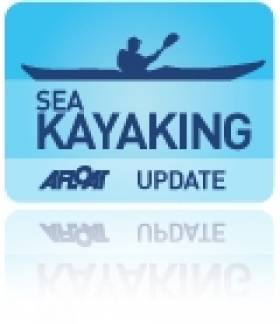Displaying items by tag: Donaghadee
Top NI Surf Kayaker Set To Cross Irish Sea
#SeaKayaking - A Portrush teen is preparing to cross the Irish Sea by kayak for charity this summer.
Top surf kayaker Andy McClelland aims to raise funds for the Alzheimer's Society, Kidney Research and the Regional Respiratory Centre with his One Man One Boat campaign, which will see him kayak 22 miles across the open water from Donaghadee in Co Down to Portpatrick in Scotland.
The current Surf Kayak Junior World Champion will embark on his challenge in a high-performance sea kayak on loan from Rockpool Sea Kayaks and is presently planning his trip with fellow physiotherapy students at Ulster University Jordanstown as well as the Causeway Coast Kayaking Club.
McClelland has yet to set a date for the solo crossing, awaiting word on the best possible weather and sea conditions in May.
The Alzheimer's Society has more on the story HERE.
Donaghadee Sailing Club
Donaghadee Sailing Club is located in the seaside town of Donaghadee on the east coast of Northern Ireland. Donaghadee comes from the Irish - Domhnach Daoi meaning 'Daoi’s Church'. Donaghadee has a long history with many of it's prominent features dating back as far as Norman times. For a long time the harbour has been the hub of the town and the history of the harbour goes back as far as the 17th century. The modern harbour was constructed in 1821 and has been a haven for local fishermen, sailors and visitors alike. The harbour also acted as a ferrying point between Northern Ireland and the Scottish village of Portpatrick on the Galloway coast.
Donaghadee Sailing Club was formed in 1970 to provide facilities for the local sailing community. The sailing club is housed at 20 Shore Street, on the seafront overlooking the harbour and bay. Donaghadee Sailing Club has gained in popularity over the years and now boasts a strong membership with members of all ages. The sailing club provides sailing opportunities to its members and has developed an extensive training programme, teaching people of varying abilities and all ages to sail. Through the running of this successful training programme we have achieved the status of being an RYA recognised training centre. Furthermore, DSC has achieved RYA championship club status and is also recognised as an RYA Sailability centre. With all this activity and increasing numbers over the years we had out-grown our premises and facilities and with a lot of hard work by our dedicated club members starting in 2005 the club commenced redevelopment plans and subsequently was successful in receiving substantial funding from Sport NI. We have also received funding from other bodies, local businesses, members of the local community and of course our own club members. Construction of the new DSC clubhouse began in October 2008 and completion will be in April 2009.
The new clubhouse has been designed with training in mind and has impressive facilities for the benfit of all.





























































